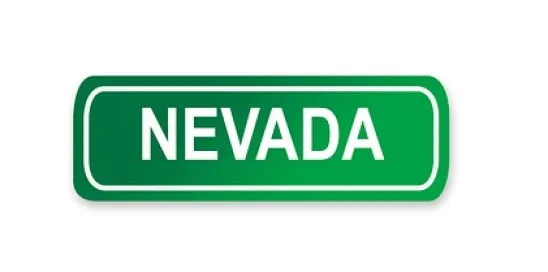| Go-To Guide: |
|
On June 15, 2023, Nevada Gov. Joe Lombardo signed SB 290, establishing the nation’s first state licensing regime for earned wage access (EWA) services provided to consumers in the state. Earned wage access allows employees to receive portions of their earned but unpaid income in advance to be repaid by the employees after being paid on payday. The governor signed the legislation (EWA Law) after it passed in both houses of the state legislature with wide margins.
Licensing Requirements
Under the EWA Law, a provider of EWA (Provider) is required to obtain a license from the Commissioner of Financial Institutions (Commissioner) in order to engage in EWA activities. The EWA Law includes both “employer-integrated” and “direct-to-consumer” earned wage access services as regulated activity requiring a license. “Employer-integrated” EWA involves the delivery of earned and unpaid wages to consumers (Users) based on data obtained directly or indirectly from an employer or an employer’s payroll service provider. “Direct-to-consumer” EWA delivers earned and unpaid wages to Users based on data that is not provided by an employer or the employer’s payroll service provider. Payroll service providers are excluded from the term “Providers” and do not require a license.
Among other requirements, a Provider must submit a license application containing the following:
- Terms of Service with Users;
- Privacy Policy;
- Fee Schedule;
- Surety Bond for $35,000;
- Information for each owner, officer, director and responsible person;
- Audited financial statements.
The license will likely be administered through the Nationwide Multistate Licensing System and Registry (NMLS). The Commissioner may set initial application and license fees of up to $1,000.
Applicant control persons, including direct owners of at least 25% of the applicant, must submit to background vetting including credit checks and fingerprint submission. Licenses will expire Dec. 31 each year. Renewal applications must be submitted with a renewal fee of up to $1,000.
Licensee Reporting Requirements
A licensed Provider will be required to submit an annual report to the Commissioner by April 15 containing:
- Audited financial statement for the most recent fiscal year;
- Copies of complaints filed by users against the Provider;
- The total amount of charges Users paid for EWA services in the state in the preceding year;
- The total number of Users in Nevada who did not receive EWA services in the preceding year but did pay a subscription or membership fee to a Provider for services including EWA, including the total amount of such fees paid;
- The total number of Users in Nevada who received 12 or more EWA transfers from the Provider in the preceding year; and
- Any other information required by the Commissioner.
Licensees will be required to obtain prior approval before making a change of control, a name change, or other changes. Advance notice must be submitted before a licensee changes control persons.
Licensee Compliance Requirements
Licensed Providers must adhere to the EWA Law’s compliance requirements, which obligate licensees to:
- Maintain policies and procedures to respond to User questions and complaints expeditiously;
- Inform Users of their rights under EWA agreements and disclose all fees associated with EWA services prior to entering into agreements with Users;
- Allow Users to cancel participation in the EWA agreement at any time, without incurring fees;
- Comply with all local, state, and federal privacy and information security laws;
- Comply with the EWA Law’s disclosure requirements regarding tips, gratuities, or donations received from Users, including providing an option for the User to select zero (0) as the amount of any such tip, gratuity, or donation;
- Comply with the Federal Electronic Fund Transfer Act and the requisite regulations when the Provider seeks payment of outstanding proceeds, fees, or other payments from a User’s depository account; and
- Reimburse Users for the full amount of any overdraft or non-sufficient funds (NSF) fees imposed on Users as a result of the Provider attempting to seek payment of any outstanding proceeds, fees, or other payments on a date before, or in an incorrect amount from, the date or amount disclosed to the User.
Additionally, Providers are prohibited from:
- Sharing any fees, voluntary tips, gratuities, or other donations received from Users for EWA services with an employer;
- Using a User’s consumer credit report or credit score to determine the User’s eligibility for EWA services;
- Charging a late fee, deferral fee, interest, or any other penalty or charge for a User’s failure to pay outstanding proceeds, fees, voluntary tips, gratuities, or other donations;
- Reporting any information about a User regarding the Provider’s inability to be repaid any outstanding proceeds, fees, voluntary tips, gratuities, or other donations to a consumer agency or debt collector; and
- Compelling payment of outstanding proceeds or other amounts due from Users through any of the following means:
– Civil action against a User;
– Use of a third party to pursue collection from a User on the Provider’s behalf;
– Sale or assignment of outstanding amounts to a third-party collector or debt buyer for collection from the User.
Some of the above requirements and restrictions do not apply in circumstances pertaining to outstanding amounts or fees Users incur through fraudulent or unlawful means. Further, a Provider may pursue an employer for breach of contractual obligations in employer-integrated business models.
EWA Law Implementation Timeline
The EWA Law requires the Commissioner to prescribe the application requirements for the license by Sept. 30, 2023. The EWA Law generally goes into effect upon passage and approval for the purpose of adopting implementing regulations and performing other administrative tasks to implement the law, upon the Commissioner’s finding that the NMLS has sufficient capabilities to allow the Commissioner to carry out the law, and otherwise on July 1, 2024. A Provider that was engaged in providing EWA services as of Jan. 1, 2023, may continue to provide services until Dec. 31, 2024, provided that it submits a license application by Jan. 1, 2024, and otherwise complies with the law.
State Regulatory Impact
The EWA Law provides that EWA services a licensee provides do not constitute loans or other credit or money transmissions under Nevada law, nor do such transactions violate Nevada laws governing the sale or assignment of, or an order of, earned but unpaid income. Licensed Providers in compliance with the EWA Law may not be deemed creditors, lenders, or money transmitters. Fees that Providers charge to Users may not be deemed interest or finance charges. In the case of a conflict between the EWA Law and other state laws, the EWA Law will control. SB 290 includes requisite amendments to other affected laws to exempt a licensee under the EWA Law from other licensing law requirements.
Regulatory Outlook
Nevada’s first-in-the-nation EWA Law provides a potential model for other state legislatures to follow. Legislation requiring registration for EWA providers has been progressing in the Missouri legislature. In 2021, the California Department of Financial Protection and Innovation (DFPI) agreed to five Memorandums of Understanding (MOUs) with EWA providers under the California Consumer Financial Protection Law (CCFPL). Under the MOUs, the providers agreed to submit quarterly reporting to the DFPI and abide by industry best practices. The DFPI ultimately entered into a total of 11 MOUs with EWA providers and recently published its data findings. The California regulator has proposed regulations that would include EWA services as a “subject product” under the CCFPL and require EWA providers that are not already licensed under other laws to register with the DFPI. EWA legislation has been proposed in recent legislative sessions in other states.
EWA Providers continue to face state and federal regulator scrutiny in an uncertain and developing regulatory landscape; by way of example, the Consumer Financial Protection Bureau granted, and later rescinded at the company’s request, a regulatory “sandbox” to one EWA provider that gave the company a temporary safe harbor from liability under the Truth in Lending Act and Regulation Z. While Nevada’s EWA Law excludes EWA products from being considered loans or other credit, this position ultimately may not be uniformly held or interpreted among various regulators. Industry participants should monitor state and federal regulatory developments in this evolving regulatory space.
Conclusion
Nevada’s EWA Law is a watershed moment for the EWA and broader financial services industry. Nevada’s implementation of the first state licensing regime will likely spur other state regulators and legislatures to consider enacting similar legislation and licensing regimes.






 />i
/>i
